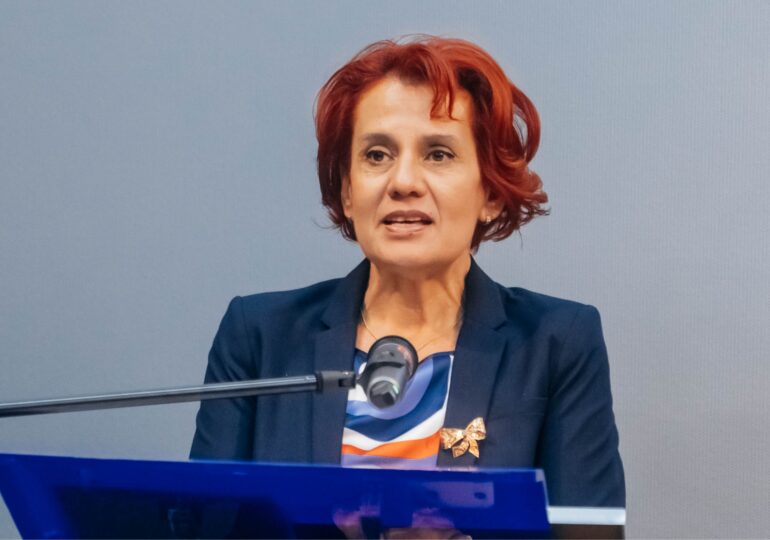From time to time, the Constitutional Court of Romania delivers a severe blow to the country’s fight against corruption, to the astonishment of some parts of society and the applause of others.
It destroyed the technical surveillance system of the National Anticorruption Directorate (DNA), to the applause of those who believed it would free us from the remnants of the former secret police. It abolished the abuse of office, to the applause of those who believed it would establish order.
Now, many of those who were happy back then are upset about the decision regarding the confidentiality of asset declarations. And the abusive power of the Constitutional Court has grown with each decision of this kind.
Why did the Constitutional Court decide only now on an exception sent to it by the Bucharest Tribunal 6 years ago, after postponing the ruling for a year?
The technical explanation is that when the composition of the Constitutional Court changes, as it will soon, cases that were under debate and unresolved need to be restarted, thus heard again by the new judges. Essentially, because now an opportunity has arisen that resonates even with the interests of some of them.
The judges decided on two matters. Unanimously, they established that the income of spouses/children under care of dignitaries and officials should no longer be included in their asset declarations.
By majority, they decided that asset declarations no longer need to be made public on the National Integrity Agency (ANI) website or on the institution's website where the official or dignitary works. Four judges opposed this decision: Livia Stanciu, Simina Tănăsescu, Mihaela Ciochină, and Iulia Scântei.
The consequences of the decision are not hard to understand. From the moment of publication in the Official Gazette, the articles of Law no. 176/2010, art.3 para.(2), art.6 para.(1) letter d) and art.12 para.(6), will be suspended for 45 days, during which time Parliament has the opportunity to amend them according to the Constitutional Court's requirements. If they fail to do so, the articles will cease to be in force.
The key question at this moment is whether there are ways to correct the law, in accordance with the Constitutional Court's decision, so that the spouse and children of the dignitary do not become unscrupulous collectors without bribery risks, and citizens have access to asset declarations, as it was until now and as it is in most European countries.
Hopes are not high, but very narrow loopholes may remain open, depending on what the Decision's reasoning will state.
1. Partner/Children's Income. According to the Constitutional Court, "the asset declaration, being a declaration under one's own responsibility, engages the criminal liability of the declarant, which is why it cannot be made other than in one's own name, as a person cannot be held criminally liable for another person's actions/declarations."
Therefore, to prevent the declarant from facing problems if the spouse has lied about their income. It is quite difficult to understand how a child under care can lie about their income.
Anyway, the explanation is quite thin, considering that false declarations are made intentionally, so if someone is misled because they were lied to, they cannot be incriminated. Furthermore, there is no judicial practice, at least not a consistent one, on such cases.
Is there a solution? Only if the reasoning explicitly states that partners can be required to sign a separate declaration under their own responsibility, as an annex to the public official's declaration. This way, they would assume responsibility for the accuracy of the information provided there.
Of course, the solution can be adopted without the need for reasoning, but it is much riskier, as it could be challenged at the Constitutional Court on the grounds that, in the end, the spouse is a third party to whom the obligations of the public official cannot be imposed. A voluntary declaration could also be provided for, but not even a legal provision is necessary for that.
2. Publishing asset declarations will no longer be possible, from this perspective the Constitutional Court's decision is clear and leaves no room for interpretation: "The Constitutional Court has deemed that depositing the declarations with the competent authority for verification (ANI) is sufficient to achieve the purpose of the law, and their publication on the ANI website and on the institution to which the declarant belongs is not necessary and proportionate to the intended purpose, violating the right to privacy."
What the reasoning may suggest is limited access, based on a legitimate interest. But defining this legitimate interest will be a major issue. Will it only include individuals directly, possibly litigiously related to the declarant? Will it also include the legitimate interest of categories such as the press and NGOs that have integrity in their field of activity?
Even if it is maximally permissive, this filter will inevitably limit access, at least by extension.
The fact that these loopholes could exist does not mean they will be used. It depends on the political will in Parliament. And it will fundamentally depend on public pressure and the transparency of political leaders.
If the issue causes a stir for a few days and then fades away, no one will bother to fix anything as long as the confidentiality does not bother any dignitary or official.
And the example set by political figures, starting with President Nicușor Dan, will be very important. It is commendable that he announced he will continue to make his asset declaration public on the presidential administration's website.
Additionally, it would perhaps be desirable for Mr. Nicușor Dan to set an example of absolute transparency and also publish the asset declaration of Ms. Grădinaru, clearly assimilated to the role of a spouse.
This standard would be raised to a relevant level in a country where spouses' incomes have become secret and could also compel other politicians to engage in similar transparency exercises. Otherwise, if the president's de facto spouse is kept secret, other politicians might feel entitled to do the same.

